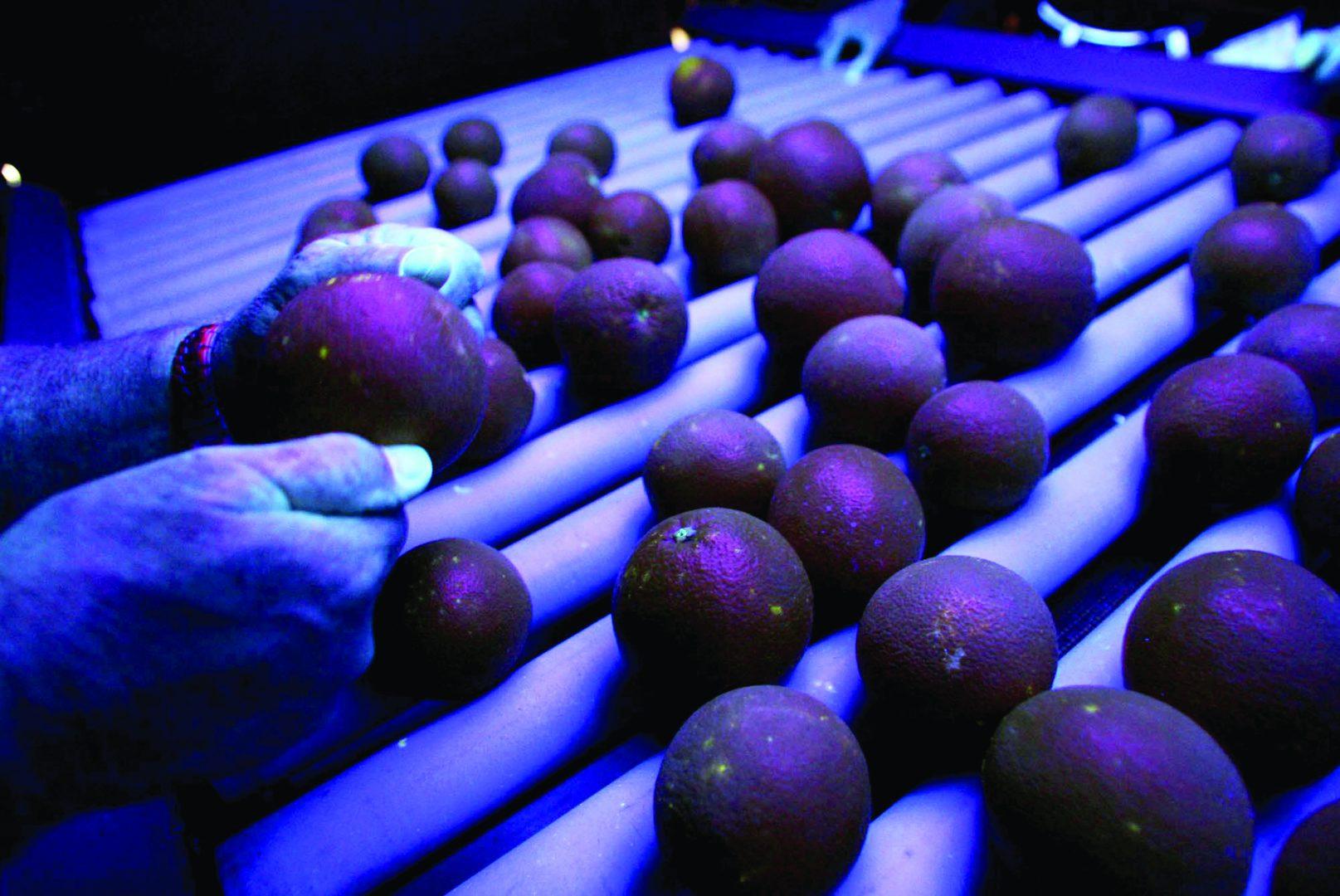
Fresno State orchard workers are watching thermostats every night like farmers across the Central Valley as freezing temperatures threaten crops.
Mark Salwasser has worked on the Fresno State farm for 22 years, but this is the coldest time he can remember in the four years he’s worked in the university’s orchards.
“This isn’t the worst freeze, though it probably ranks up there pretty high,” Salwasser said.
Cold accelerates the citrus ripening process, bringing out sugars and coloring, but freezing temperatures can damage the fruit beyond repair.
“If it gets too cold and it gets inside the fruit, the actual cells will freeze to a point and burst and eventually dry out,” Salwasser said.
He said with temperatures getting down to 25 degrees in the Fresno State orchard, there is a big possibility for damage.
Fresno State has eight acres of mandarins and 12 acres of navel oranges. The mandarins are smaller with thin skins and are more susceptible to cold weather.
“We don’t know the extent of the damage quiet yet, though it has been quite cold here.” Salwasser said. “It usually takes a few weeks to see what the damage is.”
Fresno State has measures that can help protect crops in these cold temperatures. Workers apply water to the orchards through microsprinklers whenever the temperature reaches 34 degrees and keeps them on until the temperature rises out of freezing range.
“When water freezes, the physical property of water turning from liquid to ice gives off a significant amount of heat in that reaction, which keeps the oranges warm,” Salwasser said.
He said that good irrigation can provide about a 2-degree increase, which can help protect the fruit.
“That is a significant amount, but I think about how cold it has been and we may need more,” Salwasser said.
Other growers in the Central Valley use wind machines with big propellers that are 40 to 50 feet above the orchard. The machines mix the warm air that rises and pushes it toward the ground, where it is the coldest at night.
Alyssa Houtby, director of public affairs with California Citrus Mutual, said that most growers have protective measures in place.
“A majority of the entire industry has some sort of protection on their ranches. If they don’t have wind machines, they are certainly running water to warm up the temperature,” Houtby said.
She said that some Kern County citrus growers are going so far as to have a helicopter circle above their acres of mandarins in order to keep the cold and warm air mixed.
“Everyone has been equally impacted across the Valley at one point or another over the past week,” Houtby said.
The Central Valley will feel relief from the freezing temperatures soon, said James Brotherton, a meteorologist at the National Weather Service in Hanford. Brotherton said that the Central Valley is in an abnormally cold weather pattern caused by cold air dropping down from Canada and filtering into California.
Brotherton explained that the low temperatures aren’t unusual in the winter, but the duration of this system is not normal.
“We can have these little bouts of cold weather, but it’s very unusual for them to last more than a few days,” Brotherton said.
He said it is key for farmers to be aware of the conditions.
“We put out an eight-day weather forecast so we can see these weather patterns developing anywhere from five to 10 days ahead of time,” Brotherton said. “So in this case we were messaging to the public and our partners, like emergency managers, about five days in advance.”




